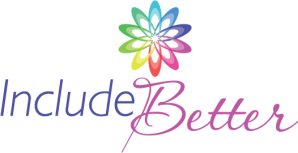October 17th was International Pronouns Day! I tweeted a thread about my pronouns and gender presentation here.
I’ve been thinking a lot about the evolution of my understanding of my gender, over the past few years. You can see some of it in the photos in my Twitter thread. You can also see a bit of it through the introductions to my talks, when I introduce myself.
Here’s my 2016 talk at the Lead Developer conference, concerning Impostor Syndrome:
My 2016 talk at DevOpsDays Tel Aviv about bias in tech interviewing:
My 2017 talk at the Lead Developer conference, about how tech hiring processes are failing us all:
You’ll notice that my personal introduction has changed a bit over the past two years.
When I first started speaking publicly, in 2012 or so, I didn’t give any pronouns for myself because I thought that people could assume, based on my appearance, what pronouns they should use for me. Over time, I’ve come to the realization that I don’t want to support or reinforce assumptions about pronouns, nor do I approve of our societal investment in a gender binary. It wasn’t until relatively recently that I realized that I don’t want a gender binary to describe me, personally, either.
Frankly, this is important to me. This is a stance on principle, as well as one that impacts me on a personal level.
I want to push back against the gender binary assumption that is so common in American culture (and in other places around the world, tbh). You CAN’T assume that you know what someone’s pronouns are, based on looking at them. You CAN’T assume that you know MY pronouns, by looking at me.
I use “she” and “they” pronouns for myself. This is a decision I’ve come to over the past couple of years. It’s been interesting and sometimes disappointing to notice the responses I’ve gotten.
When I introduce myself in a queer or trans-friendly space, people often ask which pronouns I prefer. That depends on the day, and how femme I’m feeling. I’ve found myself defaulting to “they” more often, lately, when I feel safe doing so.
When I introduce myself in more hetero and cisgender spaces, or more corporate places, I use the same introduction. Strangers almost always (every time but once in the past two years!) default to using “she” to refer to me. People who have known me for years also default to using “she” to refer to me. It seems to be mostly folks who’ve met me in the past year or two who might use “they” pronouns, but cisgender people very rarely default to using “they” for me.
Gender binary assumptions are very strong, particularly in American and European cultures. I understand that. When people look at me, particularly when I am dressed in a rather femme fashion, they most frequently default to using “she” pronouns to describe me. However, I want people to listen to me when I say that “they” is also my pronoun. I have complicated genderfeels, and they are private. I shouldn’t have to explain what I think or feel about my gender in order to have someone use the pronouns I give when introducing myself.
This is also part of why I worked on this list of gender-inclusive forms of address, and why I tweet and blog about calling people what they want to be called. I would like there to be more resources to help people understand gender as a more complicated construct, rather than binary male/female options. It’s not like this is a new concept — throughout the world, historically, there have been many complex expressions of gender beyond man or woman. Talmudic Jews discussed six genders, for example. I wouldn’t place all possible gender expressions in a continuum, either. I don’t know how many axes would even be needed to plot out the different gender expressions I’ve seen in others and myself.
My pronouns are they/them/theirs and she/her/hers. Some people use he/him/his to describe themselves. Some folks use zie/zir/zirs or ey/em/eir. Here’s a great list of many more neopronouns from Tumblr. If you’re thinking about using different pronouns than what you’ve got right now, there is a long history of doing so, and lots of options in English.
Even if you continue to use the pronouns that folks have always used to describe you for your entire life, I hope this post helps you see that respecting others’ pronouns is important. Particularly in a week when the US government is floating trial balloons on erasing trans people’s existence, it seems like that’s the very least you could do.
